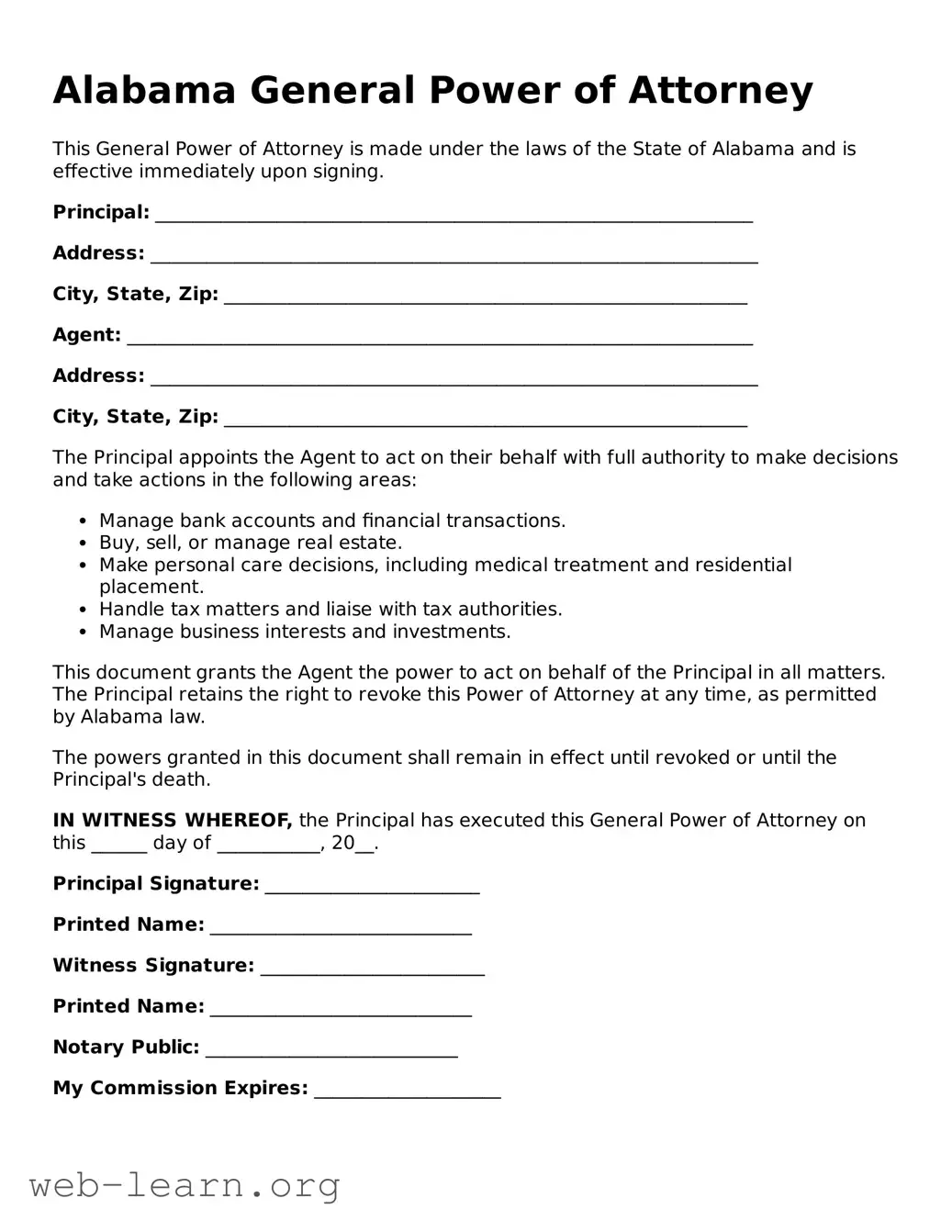Alabama General Power of Attorney
This General Power of Attorney is made under the laws of the State of Alabama and is effective immediately upon signing.
Principal: ________________________________________________________________
Address: _________________________________________________________________
City, State, Zip: ________________________________________________________
Agent: ___________________________________________________________________
Address: _________________________________________________________________
City, State, Zip: ________________________________________________________
The Principal appoints the Agent to act on their behalf with full authority to make decisions and take actions in the following areas:
- Manage bank accounts and financial transactions.
- Buy, sell, or manage real estate.
- Make personal care decisions, including medical treatment and residential placement.
- Handle tax matters and liaise with tax authorities.
- Manage business interests and investments.
This document grants the Agent the power to act on behalf of the Principal in all matters. The Principal retains the right to revoke this Power of Attorney at any time, as permitted by Alabama law.
The powers granted in this document shall remain in effect until revoked or until the Principal's death.
IN WITNESS WHEREOF, the Principal has executed this General Power of Attorney on this ______ day of ___________, 20__.
Principal Signature: _______________________
Printed Name: ____________________________
Witness Signature: ________________________
Printed Name: ____________________________
Notary Public: ___________________________
My Commission Expires: ____________________
